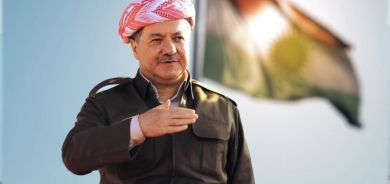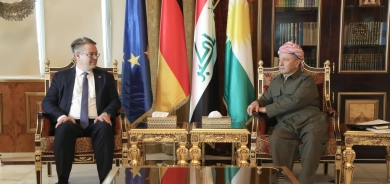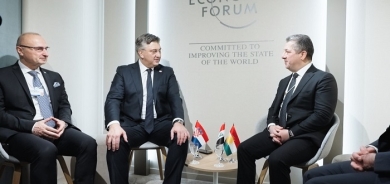WHERE IS IRAQ HEADED? WHAT SHOULD THE KURDS DO?

The Kurds of Iraq seek to export their oil to Turkey in the north, while oil-hungry Turkey increasingly supports the Iraqi Kurds in their political struggle with Baghdad. Turkish business is booming in Iraqi Kurdistan and the Kurds are greatly benefiting from it. If this continues, the historical decision in 1926 to attach the Mosul vilayet to Iraq, not to Turkey, may be reversed despite what the United States and its silent ally on this issue Iran say they want. Facts are being created on the ground that may become stronger than theories in the foreign offices.
However, none of this ever would have been possible without the American-led war that removed the tyrant Saddam Hussein and his threatening position towards the Kurds from power in Iraq. Thus, the Kurds do not want to alienate the United States, which remains their ultimate friend and guarantor, Turkey notwithstanding. Thus, the KRG is faced with a powerful dilemma: Should it follow Turkey’s lead or America’s? While the former wants to break the KRG off from Baghdad and tie it to Turkey, the latter would keep the KRG within Iraq in the name of continuing stability in the Middle East. The contrast could not seem more striking.
Nevertheless, upon closer examination, this striking dilemma may not be so impossible to solve. After all, Turkey is a much more stable country than Iraq. American support for Turkey is also nothing new, dating back to at least the end of World War II and the Truman Doctrine which helped save Turkey from Stalin and the aggressive Soviet bear that sought to bring Turkey within its orbit. Thus, Turkey ultimately became the first and only non-Western and Islamic state to join NATO in 1952. Since then the United States-Turkey NATO alliance has weathered many storms, one of the most recent being when Turkey declined to join the U.S.-led invasion of Iraq in 2003. As will be remembered, this Turkish decision not to join the United States and the Iraqi Kurds quickly led to the Iraqi Kurds shoring up the northern front in the war against Iraq and Turkey being the odd man out.
However, history and politics can move in strange ways. Despite what happened in 2003, Turkey is now poised on becoming the closest regional ally of the KRG. Would this be bad for the Kurds and Middle East stability? Who can ultimately say, but from today’s vantage point it would seem better for the Kurds to cast their lot with relatively stable Turkey than to continue to hope that Nouri al-Maliki will become their friend and this suddenly lead to stability. The Kurds should never burn their bridges to Baghdad, but this does not mean that new and stronger ones should not be built to Ankara, which after all is a proven American ally, while Baghdad is not. Seen in this light, the United States should soon come around to accepting the new Turkish-KRG ties.
In the meanwhile, the Kurds in Turkey will find new hope and support from the KRG and the United States from a Turkish-KRG alliance. Far from fearing such an eventuality, Turkey should welcome the chance for a moderate, stable KRG to influence Turkey’s more radical and violence-prone Kurds. The United States also should look favorably upon such developments that promise to lead to greater stability in Turkey.
As for the Iraqi Kurds, their promise of continuing economic and political ties with the United States are more likely to continue to develop in partnership with America’s longtime Turkish ally than with unstable Shiite Iraq, which increasingly acts like Iran’s outer paw. The KRG exists in a bubbling cauldron of change and instability and today is no exception. Thus, the door is open to many new initiatives. The one path I would most strongly advise against, however, is the one that leads to war for that is a false road that could lead the Kurds to lose all that they have so painstakingly gained in the past decade.

 Michael Gunter
Michael Gunter











